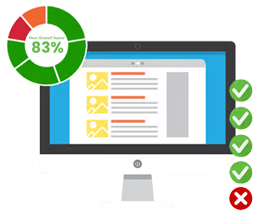Consequences of a Compromised Domain

Our online presence is often intertwined with our personal and professional reputations. When we speak of online assets, one of the most valuable and often overlooked is a domain. Just as a piece of land in the real world can be valuable real estate, a domain in the virtual world holds significant value. So, what happens when this digital real estate is compromised? Let’s explore the potential consequences.
1. Loss of Data
When a domain is compromised, one of the first and most concerning consequences is the potential loss of data. This could include user data, business transactions, sensitive company documents, and other proprietary information. Such a loss can be catastrophic, especially if backups are not available.
2. Website Downtime
A compromised domain often leads to website downtime. This unavailability can cause significant disruption to businesses that rely on their website for sales, lead generation, or providing essential information to their users.
3. Financial Losses
Beyond the immediate cost of addressing the breach, businesses may also face financial losses due to lost sales, transaction disputes, or fines for data breaches, especially if they are found to be non-compliant with data protection regulations.
4. Damage to Reputation
Trust is hard to gain and easy to lose. If customers or clients discover that a domain has been compromised, it can severely damage the reputation of a business or individual, leading to a loss of trust that can be difficult, if not impossible, to regain.
5. SEO and Search Engine Penalties
Search engines prioritise the safety of their users. If a domain is found to be compromised and potentially harmful, search engines like Google can blacklist the site, causing it to drop significantly in search rankings or even be removed from search results altogether.
6. Spread of Malware
Compromised domains can be used as launchpads to spread malware, turning a company's website into a source of infection for unsuspecting visitors. This not only further damages the domain owner's reputation but can also lead to legal liabilities.
7. Loss of Control
With domain compromise, there's a possibility that cybercriminals could redirect the domain to other sites, alter content, or even transfer domain ownership, leading to potential long-term loss of access.
8. Phishing Attacks
Cyber attackers often use compromised domains to launch phishing attacks, deceiving users into providing sensitive information like login credentials or credit card details by impersonating a trustworthy entity.
Prevention is Better than Cure
Given the severe consequences of a compromised domain, it's crucial to prioritise domain security. Employ strong, unique passwords, enable multi-factor authentication, and consistently back up data. By being proactive in domain security, individuals and businesses can safeguard their digital real estate and protect their reputation in the vast online landscape.
In Conclusion
A domain acts as a gateway to a business or individual's online presence. Its compromise can have cascading repercussions, from data loss to reputational damage. Being aware of these consequences and adopting robust security measures is essential for anyone with a stake in the digital world.



